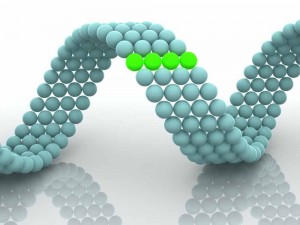-
 Cancer
CancerCancer-Causing Gene Alone Doesn’t Trigger Pancreatic Cancer, Mayo-led Study Finds
JACKSONVILLE, Fla. — September 7, 2012. More than a cancer-causing gene is needed to trigger pancreatic cancer, a study led by Mayo Clinic has found. A second factor creates a "perfect storm" that allows tumors to form, the researchers say. The study, published in the Sept. 10 issue of Cancer Cell, overturns the current belief that a mutation in the KRAS oncogene is enough to initiate pancreatic cancer and unrestrained cell growth.

MULTIMEDIA ALERT: Video resources, including an interview with Dr. Crawford, are available for journalists at the Mayo Clinic News Network.
The findings uncover critical clues on how pancreatic cancer develops and why few patients benefit from current therapies. The findings also provide ideas about how to improve treatment and prevention of pancreatic cancer.
The research team, led by Howard C. Crawford, Ph.D., a cancer biologist at Mayo Clinic's campus in Florida, and Jens Siveke, M.D., at Technical University in Munich, Germany, found that for pancreatic cancer to form, mutated KRAS must recruit a second player: the epidermal growth factor receptor, or EGFR.A third genetic participant known as Trp53 makes pancreatic tumors very difficult to treat, the study showed.
The scientists also found that EGFR was required in pancreatic cancer initiated by pancreatic inflammation known as pancreatitis.
"We believe the perfect storm needed to trigger pancreatic cancer include KRAS mutations and inflammation in the organ, which then work synergistically to turn on EGFR," says Dr. Crawford.
"The bottom line is, without EGFR, tumors don't form — and that was never known before this study," he says. "We also think that inflammation in the pancreas has a big impact on turning on EGFR."
The researchers discovered that when they blocked EGFR activity, the mice studied were protected against developing chronic pancreatitis and pancreatic cancer.
They further found that in mice that had lost expression of the TP53 tumor suppressor — a situation that mirrors up to 60 percent of human pancreatic cancer cases — tumors escape the dependency on EGFR for initiation and continued growth of pancreatic cancer, Dr. Crawford says.
Pancreatic cancer is a highly lethal disease; no drug has been able to target the mutant KRAS protein. The study suggests some patients, such as those with chronic pancreatitis, may be good candidates for treatment with EGFR inhibitors to fight or prevent pancreatic cancer, Dr. Crawford says.
"The clinical implications of this study are exciting. It suggests that pancreatic cancer patients with normal p53 activity, as well as patients with chronic pancreatitis, may be good candidates for treatment with EGFR inhibitors," Dr. Crawford says.
The EGFR inhibitor erlotinib is part of the standard therapy for pancreatic cancer patients, but has minimal effects in the patient population as a whole, he adds. "But that may be because many of the patients likely had a mutation in the TRP53 tumor suppressor, so erlotinib would not help them, since EGFR was no longer necessary for tumor growth.
"Perhaps erlotinib or other EGFR inhibitors would work much better in patients who do not have a TRP53 mutation," he says. "We also believe this kind of drug could prevent pancreatic cancer formation in patients with chronic pancreatitis, which is a significant risk factor for development of pancreatic tumors."
"These findings give us some greatly needed clues about how pancreatic cancer develops and progresses," Dr. Crawford says. "The more we understand about these early tumors, the more we will be able to work on diagnosis and therapy."
The study was funded by the National Cancer Institute.
###
About Mayo Clinic:
Recognizing 150 years of serving humanity in 2014, Mayo Clinic is a nonprofit worldwide leader in medical care, research and education for people from all walks of life. For more information, visit 150years.mayoclinic.org, www.mayoclinic.org and newsnetwork.mayoclinic.org.
Media Contact: Kevin Punsky, 904-953-2299 (days), punsky.kevin@mayo.edu







